Your cart is empty.


Your cart is empty.
Applications are OPEN for law students in their final or penultimate year of law school to work with our Client Services Coordinator and Legal Team.
Why Volunteer with Us?
The program is designed to train law student volunteers to undertake client intake and assist the legal team with appropriate legal tasks. We specialise in employment law issues, including discrimination and sexual harassment, and are committed to feminism, trade unionism, and workers’ rights.
By volunteering one day per week during the university semester, you will:
✔ Receive training in employment law and legal procedures.
✔ Gain hands-on experience in client intake and case management.
✔ Learn to draft legal letters and tribunal forms.
✔ Participate in professional development opportunities.
✔ Obtain a reference for future job applications.
What Will You Work On?
As a volunteer, you will:
✔ Assist with client intake—handling enquiries, booking appointments, and managing diaries.
✔ Monitor the client services inbox and coordinate document forwarding.
✔ Draft legal documents, including client correspondence and tribunal submissions.
✔ Conduct legal research, including case law and legislation analysis.
✔ Observe client interviews, advice sessions, and conciliation conferences.
We are seeking passionate and dedicated law students who:
✔ Can commit to volunteering one day per week for the university semester.
✔ Have strong oral and written communication skills.
✔ Are studying or have an interest in feminism and employment law.
✔ Have experience in customer service.
✔ Are committed to feminism and trade unionism.
✔ Can communicate confidently and empathetically with clients from diverse backgrounds, including those who have experienced distress or trauma.
What Our Past Volunteers Say
When asked about their experience volunteering at the Centre, here’s what our past volunteers had to say:
I was inspired to volunteer for the Working Women’s Centre because of my own negative experiences. Since then, I have become passionate about workers’ rights, advocating for equality, and creating a safe space for vulnerable groups in the workplace. Volunteering in this field has allowed me to align with my social justice values and positively impact the community by helping provide legal support to those who may not otherwise afford it.”
— Gabriella Candido, Law Student Volunteer, Semester 2, 2023
Reflecting on my time volunteering at the legal centre, the genuine warmth from everyone stands out. Everyone is so friendly, and it makes all the difference. I’ve also gained invaluable insight from sitting in on client meetings and attending mediations. Witnessing firsthand the legal challenges many women face has been an eye-opener.”
— Hayley Tan, Law Student Volunteer, Semester 2, 2023
2025 Law Student Volunteer Program
The deadline to submit your application is 20 FEBRUARY 2025.
We strongly encourage applications from First Nations peoples, people of colour, LGBTQIA+ individuals, disabled applicants, and survivors of gendered violence. We are committed to accessibility—please contact us to discuss any workplace adjustments you may require.

We’re Hiring! ????
We are looking for two brilliant leaders to lead a funded, feminist, ambitious and impact driven organisation. The WWC SA is an institution for many, the Directors are the custodians of this important organisation.
The Deputy Director has a focus on internal organizational culture while the Director is the spokesperson, financial and good governance driven leader. Excellent conditions.
https://www.ethicaljobs.com.au/members/workingwomenscentre/director-1
https://www.ethicaljobs.com.au/members/workingwomenscentre/deputy-director

The Albanese Government funds Working Women’s Centres across the country.
Working Women’s Centres (WWC) have been funded in every state and territory to assist women who are experiencing sexual harassment, discrimination and other workplace issues.
The Albanese Government has funded established centres (South Australia, Queensland and Northern Territory) and women’s legal centres, community legal centres, unions and workers’ compensation services to establish centres in Western Australia, Victoria, New South Wales, the Australian Capital Territory and Tasmania.
Newly established WWCs are set to commence operations and will shortly provide free and confidential support to women seeking information, support and advice about workplace issues, with a focus on sexual harassment and discrimination in the workplace.
The funding responds to Recommendation 49 of the Respect@Work report which stated:
Australian governments provide increased and recurrent funding to Working Women’s Centres to provide information, advice, and assistance to vulnerable workers who experience sexual harassment.
The Sex Discrimination Commissioner, Kate Jenkins, in her Respect@ Work Report recognised the unique holistic support provided by Working Women’s Centres: “We found they were uniquely the most effective, victim-centric model that could deliver support, advice [and] advocacy to women [across a] range of issues in their work.”
The established South Australian, Northern Territory and Queensland WWCs have been fighting for ongoing and expanded funding for decades and excitingly welcome the expansion of the WWC network.
WWCs provide crucial legal, education and advocacy services to women who are experiencing workplace issues, predominately sexual harassment and discrimination. Legal advice and representation for working women and representation is free, confidential and trauma informed.
Centres will also undertake important work to prevent sexual harassment and discrimination in the workplace by providing workplace training and community education to assist employers to create safe workplaces.
WWCs have always worked in partnership with the women’s movement, trade unions, all levels of government and legal providers to assist women who fall through the cracks. This new funding will strengthen these relationships nationwide.
Funding
The already established South Australian, Northern Territory and Queensland WWCs have been funded to expand their services.
The following services have been funded to establish Centres in:
Working Women’s Centre Australia (National Body)
The Albanese Government has also funded the South Australian Working Women’s Centre to establish the National Body, Working Women’s Centre Australia which will lead and coordinate advocacy, research and contributions to policy debates about systemic issues effecting working women.
Abbey Kendall, former Director of the South Australian Working Women’s Centre has been appointed the WWC Australia CEO.
State and Territory Services
Media contacts in each state and territory can be contacted to discuss local WWC Centres and their operations.
Quotes Attributable to Abbey Kendall, WWC Australia CEO:
“For 45 years, Working Women’s Centres have been a voice for Australian women. This funding is an opportunity to build, extend and expand our impact in all states and territories and improve the lives of Working Women across the country.”
“Working Women’s centres are an industrial safety net for working women who fall through the cracks. Our holistic model of service has been nationally recognised in the Respect@Work report and this new funding will allow us to reach more women and help create safer workplaces for everyone. ”
“The government’s investment in Working Women’s Centres fosters a more equitable and inclusive society where every woman can thrive. By supporting women in the workforce, we unlock their full potential, driving economic growth and social progress for the benefit of all.”
Quotes Attributable to Katrina Ironside Women’s Legal Services NSW CEO”
Women’s Legal Service NSW has provided legal services to working women for more than 20 years, enhancing women’s economic security and moving the dial on gender equality. We have provided free specialist legal help to working women who have been forced to endure sexual harassment and discrimination at work, as well as undertaking systemic advocacy in support of women’s rights at work.
We are delighted to have been recognised for this work by being funded to establish the new Working Women’s Centre in NSW. The funding will ensure women’s safety and economic security as working women. This is the only gender-specific trauma informed service for working women in NSW.
We look forward to being able to assist more women to stand up for their right to a safe workplace.
Quotes attributable to Dr Jennie Gray, Women’s Legal Service WA CEO
“Women’s Legal Service WA is excited to be partnering with Circle Green to deliver the inaugural Working Women’s Centre in Western Australia. Our collaboration leverages our expertise in both the provision of gender specific legal services and employment law.”
“The establishment of a Centre in Western Australia’s has been long awaited. We are looking forward to delivering services to improve outcomes for women with workplace issues that reflect this state’s geography, scale and industries.’
Quotes Attributable to Kristen Wallwork, Executive Director South-East Monash Legal Service Victoria:
“The establishment of Working Women Centre Victoria marks a significant milestone in addressing the needs of women across Victoria,” said Kristen Wallwork, Executive Director of SMLS. “Our consortium combines the expertise of four leading organisations committed to advancing gender equity and justice in the workplace. The consortium looks forward to collaborating closely with our local partners to deliver impactful services, and with the Working Women’s Centre National Body to drive positive change,”
Quotes Attributable to Eloise Dalton – Working Women Queensland Director, part of Basic Rights Queensland
“We currently provide services to over 1000 women each year. This funding means we can continue to provide critical services to women who have nowhere else to turn when faced with sexual harassment, discrimination, bullying and underpayments. The existing and newly established Centres will play a crucial role in advocating for the rights and well-being of women in the workforce.”
Quotes attributable to Nicki Petrou, Director NT WWC
“After many years, we are pleased to see some funding security and recognition of the value that Working Women’s Centres provide to working women, the community, including the unique challenges involving working and delivering services in remote, regional, rural locations. This enables us to now get on with vital work addressing poor employment practices both individually and systemically and continue to provide a safe place for women to seek our support.
Existing Working Women’s Centres have worked collaboratively, advocating for sustainable funding including for a national peak body. We are excited to see this vision realised and look forward to working with the new Working Women’s Centres. We appreciate the Federal Government’s commitment to implementing the Respect@Work report recommendations, and the work of the former Sex Discrimination Commissioner, Kate Jenkins and her team in relation to this landmark report and support.”
Quotes attributable to Nikki Candy, Interim Director of SA WWC
“We are so pleased to grow the WWC network and increase our impact across the country. Working Women’s Centre’s are an institution for working women, and our service has been life changing for many South Australian women. We look forward to expanding our education and workplace training services to ensure that we are providing workplace education to workplaces in small to medium enterprise, in high-risk industries and to those who need it the most.”
Quote attributable to Yvette Cehtel, Women’s Legal Services Tasmania CEO”
“Women’s Legal Service Tasmania (WLST) and Worker Assist Tasmania are excited to be launching a Working Women’s Centre in Tasmania through WLST. This will mean women in Tasmania will have access to legal assistance covering sexual harassment, employment law, discrimination and workers compensation, accessible in one place.
The legal assistance will be supplemented with integrated social support from a social worker and a financial counsellor. Part of the offering will also be the rolling out of training and workshops targeting employers to improve safety at work.
WLST and Worker Assist Tasmania are currently recruiting for these positions.”
Media Contacts
WWC Australia
Abbey Kendall, CEO of Working Women’s Centres Australia
Email: abbey@wwc.org.au
08 8410 6499
South Australia
Nikki Candy, Interim WWC SA Director
Email: nikk@wwc.org.au
08 8410 6499
Queensland
Eloise Dalton – Director of Working Women’s Queensland
07 3421 2505
Northern Territory
Nicki Petrou – WWC NT Director
(08) 8981 0655
Western Australia
Dr Jennie Gray CEO of Women’s Legal Services
0427 017 467
New South Wales
Katrina Ironside Women’s Legal Service NSW CEO
Katrina.Ironside@wlsnsw.org.au
(02) 8745 6900
Tasmania
Yvette Cehtel CEO Women’s Legal Service Tasmania
(03) 6231 9466
Victoria
South-East Monash Legal Service Inc – consortium arrangement
Kristen Wallwork (Executive Director)
(03) 9545 7400
Australian Capital Territory
Elena Rosenman Women’s Legal Services ACT CEO
(02) 6257 4377
We are pleased to announce the commencement of our Law Student Volunteer Program for Semester 1, 2024, with the successful recruitment of two new volunteers, Lejla Cacvic and Suzy Jeong.
Both Lejla and Suzy make a wonderful addition to the centre, and we thank them for generously offering to volunteer their time.
Our volunteer program is overseen by our Client Services Coordinator, Sarah Devenport, and Lawyer, Angela Scarfo, who are both constant points of contact for our students, providing training and supervision in an ongoing capacity to enhance and foster growth in skills and confidence.
The program is designed to train law student volunteers to undertake client intake and assist the legal team with appropriate legal tasks.
Our program ensures that both Suzy and Lejla will experience a busy legal practice and be exposed to:
The law student volunteer program runs for the duration of the university semester and we expect the new intake of volunteers to commence shortly before semester two 2024.
This program is funded by the South Australian Attorney General’s Department.
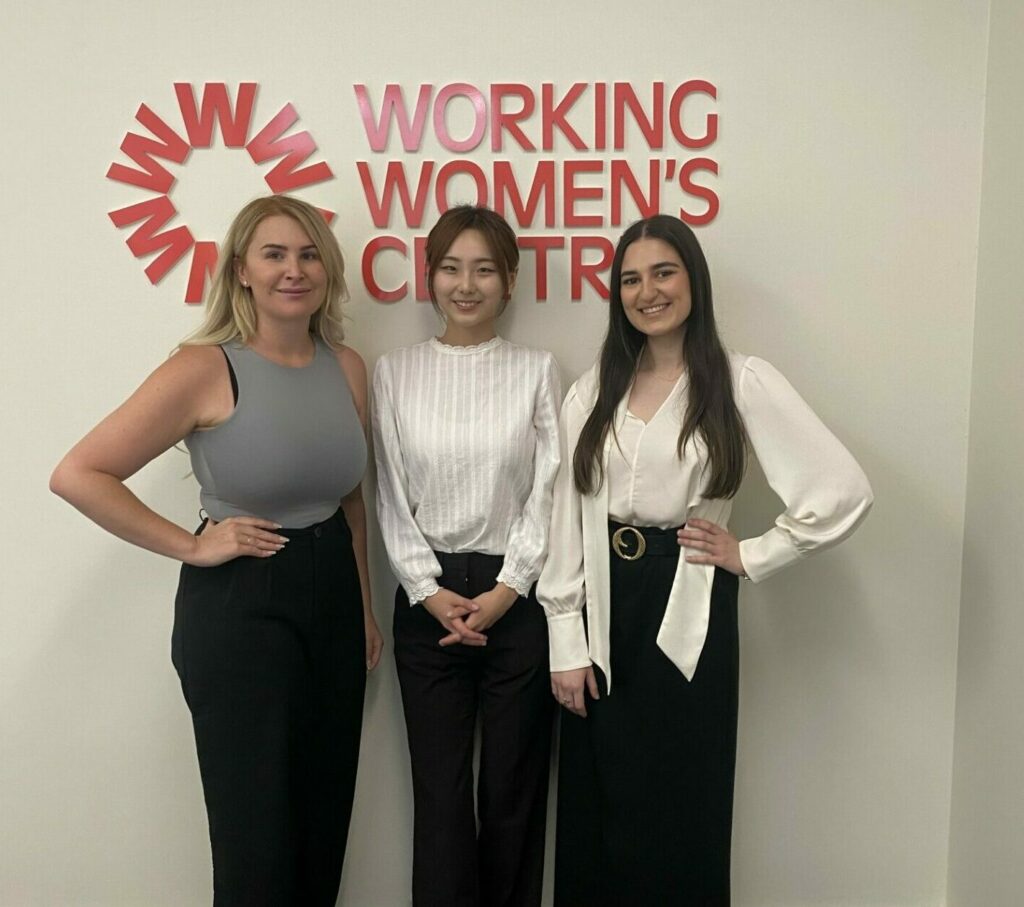
(From left to right) Client Services Coordinator Sarah Devenport; new volunteers Suzy Jeong and Lejla Cacvic.
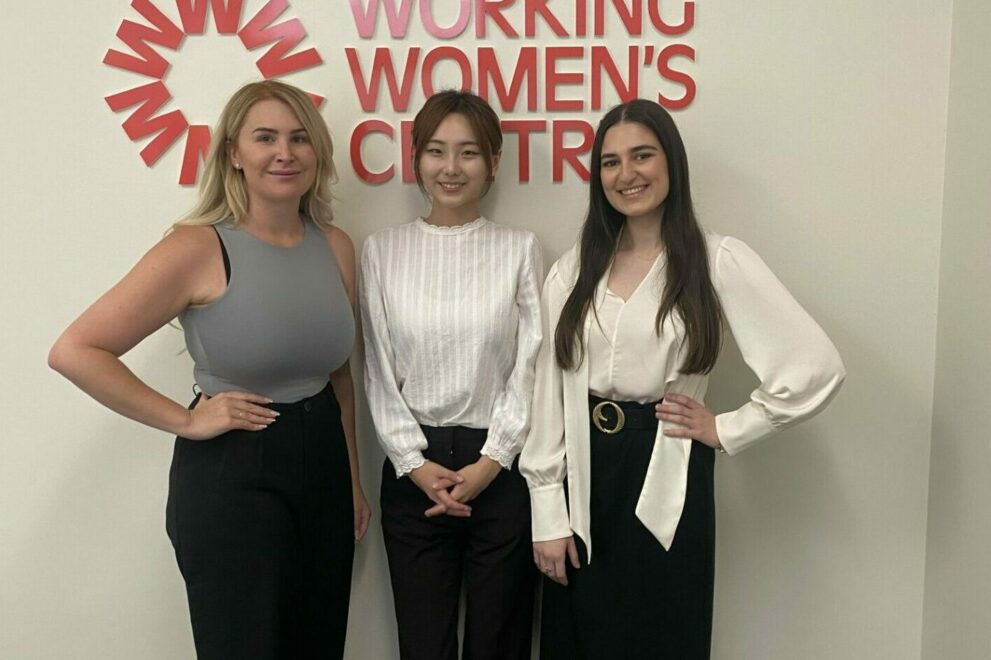
Our latest Annual Report showcases our achievements in the last financial year, and helps to tell the story of the work that we do, for the benefit of our clients.
You can download our Report here
The Working Women’s Centre SA joins a coalition of women’s, justice and legal groups who are calling for all South Australian parliamentarians to oppose the passing of these anti-protest laws. We implore you to consider the long-lasting implications of this legislation and its impact on the values of equality, justice, and democracy that our state prides itself on. We urge you to seek alternative approaches that balance public safety with the preservation of our cherished democratic rights.
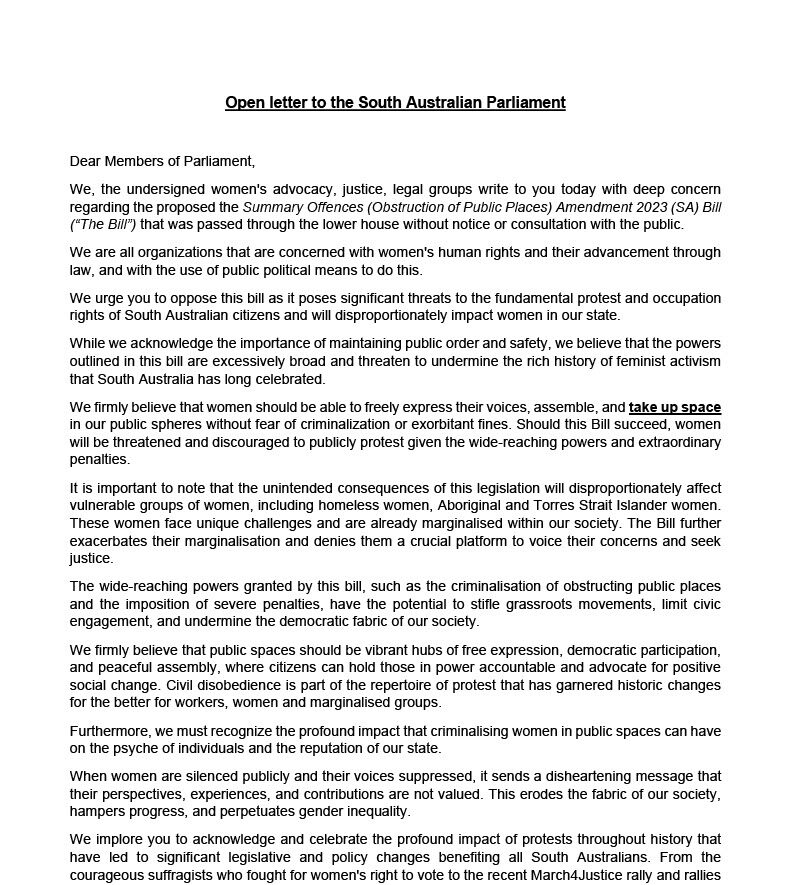
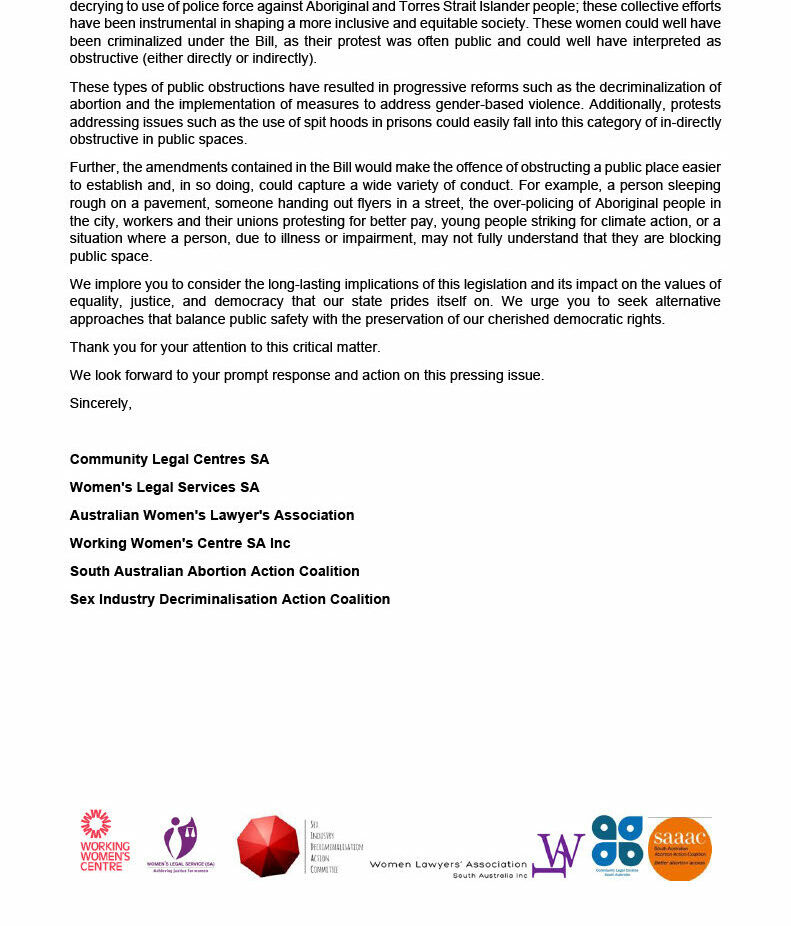
We are deeply saddened to share the loss of our dear friend and comrade Michelle Hogan. Michelle was a passionate and dedicated feminist unionist and long-time member and Chair of the South Australian Working Women’s Centre Management Committee.
Michelle served as our Chair for five years. Her leadership strengthened the Working Women’s Centre, supported us through difficulties, and inspired our growth and transformation into the organisation we are today.
We will miss her courage, her warmth, her intelligence, and her fierce determination.
Michelle was unrelenting in her pursuit of a more equitable world for working women. She was a role model and mentor for many South Australians dedicated to this cause.
Her legacy includes her contribution to the Anna Stewart Memorial Project – a program that has trained and emboldened a generation of union women.
Michelle went above and beyond for her community both as a worker and an activist. For over 40 years, her career involved significant work in education, women’s community services, women’s health, civil society and the trade union movement.
Michelle was Assistant Secretary of the UTLC of SA (SA Unions) during the early 2000’s. She volunteered her time and energy to work with the May Day Collective, APHEDA Union Aid Abroad, and the National Trust of Australia. Michelle was an elected local councilor in the Port Adelaide Enfield Local Council.
We express our deepest sympathies and support for Michelle’s partner Robert and her family as they grieve this significant loss. We share our condolences with Michelle’s many friends, comrades and colleagues including those she knew through her work at the Centre, and the many other causes and communities she belonged to, connected with and built.
The Working Women’s Centre would not be in the position it is today without Michelle’s tireless work and passion. We thank her for all she did to support us, including being our leader, advocate, and lifelong friend.
We also thank our clients, supporters, and friends for their patience during this time. We are so sad to have lost Michelle. We loved Michelle and we will bring Michelle’s passion, commitment and strength as we continue to support working women across South Australia.
In solidarity,
The Working Women’s Centre Board and Staff
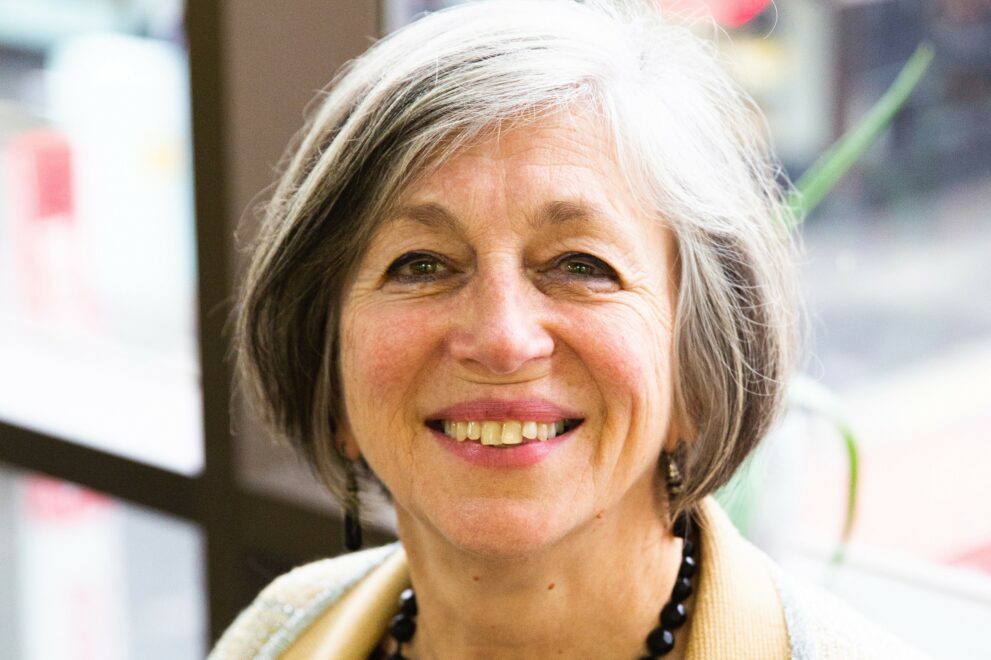
On Wednesday 19 October 2022 we held our AGM and launched our 2021-2022 Annual Report.
Our latest Annual Report showcases our achievements in the last financial year, and helps to tell the story of the work that we do, for the benefit of our clients.
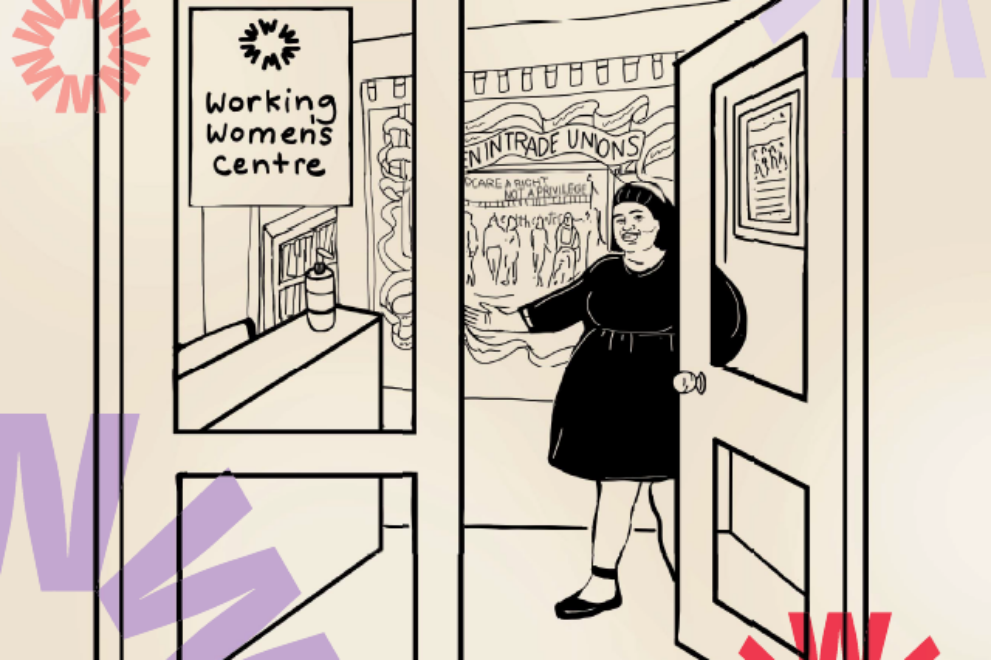
We are pleased to launch our Small Business Webinar Series for 2022.
Our lawyers at the Centre have advised hundreds of clients to date this year. Whilst we are funded to provide this free advice service to women and vulnerable workers, we also provide education to small business employers, to help to prevent some of the issues we see occurring.
We have analysed the advice we have given this year, and we have identified some common themes.
Our Small Business Webinar series has been designed around these themes, as a series of bite-sized, easy-to-understand educational sessions to help busy small businesses understand their obligations to their workers.
Register now, or recommend a session to a friend.

The Working Women’s Centre SA Inc will be running a free walk-in legal advice clinic at Pooraka Farm Community Centre.
When: Thursday 30th June 2022.
9.30am – 11.30am.
1.30pm – 4.30pm.
Where: 126 Henderson Ave, Pooraka, (Pooraka Farm Community Centre)
If you or someone that you know has a workplace-related issue and needs access to free legal advice, drop in and have a chat with one of our friendly Industrial Officers.
If you still need free legal advice, but can’t make it to the walk-in clinic you can call us to make an appointment to receive advice via the telephone.
Call us on: (08) 8410 6499
or for a free phone call 1800 652 697
The Working Women’s Centre SA Inc is looking for 4 brilliant intersectional feminists to join our volunteer management committee. Our management committee meets monthly and is responsible for the governance of our feminist, collectivist and industrial organisation. We are looking for
If you’re interested, please download the relevant position description and submit your expression of interest to our Chair, Michelle Hogan by 19 May 2022. Michelle’s details can be found in the position description.
We encourage applications from First Nations people and people of colour. We want racial and cultural diversity within our centre and are building and maintaining an anti-racist workplace culture.
We encourage applications from all cis and trans women, as well as non-binary people who are comfortable working on advocacy that focuses on the experiences of women.
We encourage applications from disabled applicants, please contact us about the accessibility of the workplace.
We encourage LGBTIQ+ applicants.
We encourage applications from survivors of gendered violence.
WWC SA Treasurer – Volunteer position 19 April 2022
WWC SA Board member – supporter of the objects – Volunteer position 19 April 2022
WWC SA Small Business Represenative – Volunteer Position 19 April 2022
WWC SA Trade Union Representative x 2 – Volunteer position 19 April 2022 (1)
23 November 2021
Background to policy
The WWC SA is a community service that needs to balance accessibility, community safety and Work Health and Safety of all staff, volunteers, and management committee. Vaccination, along with masks, office hygiene, social distanced conversation, is the safest and most efficient way to prevent COVID-transmission and the WWC SA is committed to keeping all workers and volunteers safe as well as the community at large.
Emergency declarations that mandate vaccinations and isolation are often made with short notice to the public and for this reason, this policy will be regularly reviewed to ensure compliance with those declarations.
Vaccination policy for visitors who are eligible for the vaccination
All visitors, as of 23 November 2021, to the WWC must be double vaccinated against COVID-19 to enter the office space at Level 1 Station Arcade 52 Hindley Street Adelaide (“the office”). Where relevant and if eligible all visitors to the centre must have obtained their booster COVID-19 vaccine.
All vaccinations must be approved by the Australia government. For ease of reference here is a list of approved vaccinations: https://www.health.gov.au/initiatives-and-programs/covid-19-vaccines/approved-vaccines
Proof of Vaccine
Where an employee, volunteer or management committee member has invited a person to the Centre, it is their responsibility to ensure that the visitor has shown their proof of vaccination prior to entering the office. If possible, this should be done in advance of them attending the office.
Walk-ins
Where a person unexpectantly visits the Centre, it is the responsibility of the staff member or volunteer that greets the person, to ask for proof of vaccination prior to them entering the wider office space. If the visitor cannot provide proof of vaccination, the staff member must ask the person to leave citing this policy and offer to provide a service over the telephone or online.
A copy of this policy must be provided to the walk in. A policy notice must be visible on the door.
Vaccination Exemptions
We recognize that there are medical reasons why a person may not be able to receive a COVID-19 vaccination, or may choose not to in their circumstances, including because of protected attributes such as disability.
We will only accept evidence of an exemption where it is evidence by Australian Immunisation Register (AIR) to say the person has a medical contraindication.
Where a person who seeks to enter the WWC office and has a health exemption for the vaccination, where possible we will make alternative arrangements (online or telephone meeting) for that person or persons to meet with staff member or volunteer. Where an online or telephone meeting is not appropriate, then the staff member must meet with the Director and Work Health and Safety officer to discuss a strategy.
Masks
All fully vaccinated people visiting the office must always wear a mask for the duration of their visit, unless they have an underlying health condition that prevents them from wearing one.
Where a WWC SA worker or volunteer can socially distance themselves from the client or member of the public and they are located in a well-ventilated office, then the worker or volunteer can elect to remove their mask and allow the fully vaccinated client member of the public to do the same.
Digital Divide
We recognize that for some clients, arranging an online or telephone meeting is difficult due to reduced digital literacy or not having the tools to do so (phone credit, a computer or smart phone). Where a staff member or volunteer identifies a digital barrier to an eligible but unvaccinated person accessing our service they must speak with the Director or WHS officer to discuss whether there is an alternative measure we can take to provide a service to them.
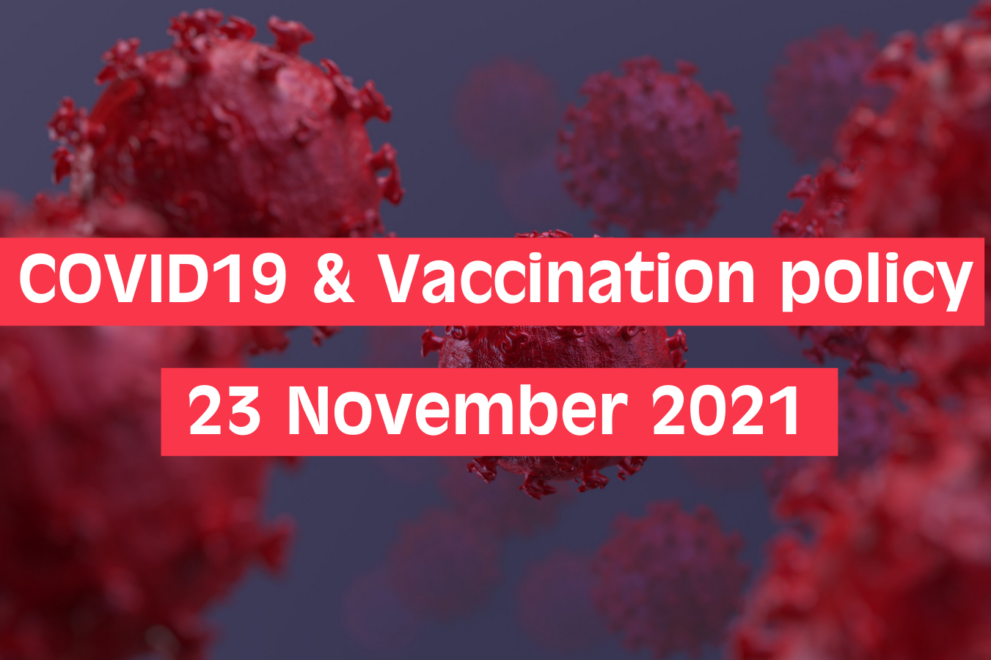
If you are an employer or organisational leader, or you work in HR, get in touch with us about how you can get involved with our project about gendered violence and insecure work.
Our Director Abbey Kendall spoke with Kathryn Bermingham, for the Advertiser on September 22, 2021.
Abbey Kendall, director of the Working Women’s Centre of SA, said there are clear steps employers can take to ensure Christmas parties are safe.
“Prior to a Christmas party, an employer really needs to look at the culture within an organisation or business,” she said.
“If there is, that needs to be addressed before the party … the emphasis really needs to be on prevention.”
Ms Kendall said complaints arising from Christmas parties made January was a particularly busy time for the centre.
“The complaints range from lewd comments at the Christmas party bar right through to serious assaults,” she said.

The Morrison Government has been accused of ignoring another recommendation of the landmark Respect at Work report.
Working Women’s Centres were singled out by Sex Discrimination Commissioner Kate Jenkins as an essential service for providing support for victim-survivors of sexual harassment, but the future of two centres – in the Northern Territory and Queensland – is in doubt.
Featured:
Emma Sharp
Nicki Petrou, Director, NT Working Women’s Centre
Abbey Kendall, Director, SA Working Women’s Centre
Helen Campbell, Executive Officer, NSW Women’s Legal Service
Reporter:
Cathy Van Extel
Duration: 7min 54sec

We are looking for a small team of volunteer Fundraising Ambarassors! The fundraising ambassadors will drive our fundraising efforts to help us reach our fundraising goal ($50,000 over the next 12 months). You will organise community engagement activities to help us fundraise and build our community of supporters. This will include helping to organise a large fundraiser event in April or May of 2022.
![]() Are available to attend our Fundraising Ambassador Info Night at 29 SEP, 5:30 PM – 7:30 PM
Are available to attend our Fundraising Ambassador Info Night at 29 SEP, 5:30 PM – 7:30 PM
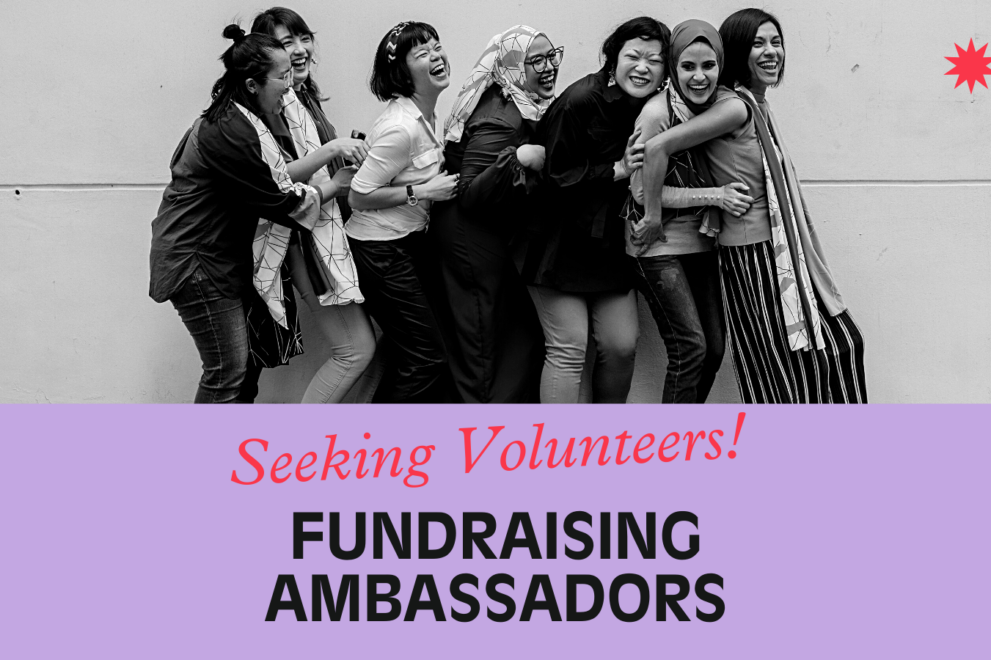
Equal Pay Day was established to address the gender pay gap, the difference between women’s and men’s average weekly full-time equivalent earnings, expressed as a percentage of men’s earnings.
According to the Workplace Gender Equality Agency (WGEA), in 2021, the national gender pay gap is 14.20%, which means that Australian working women on average are paid $261.50 less than their male counterparts. What a disgrace!
|
|
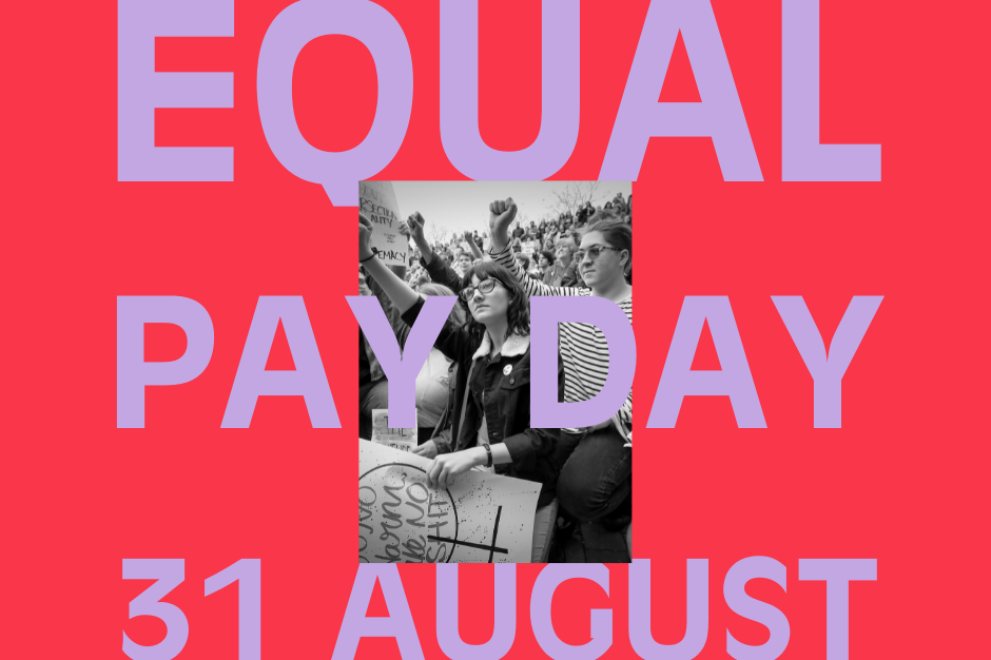
Read the full article on Refinery29 here
The Northern Territory Working Women’s Centre — a community-based non-profit organisation that supports women through gender discrimination, sexual harassment and assault in the workplace — is at risk of closure. Sign the petition to demand federal funding — it only takes 2 minutes! To read more about Refinery29 Australia’s long-term initiative to dismantle sexual harassment in the workplace, visit the #FiredUp hub.
“reclaim its position as leaders in tackling sexual harassment, provide employers with the guidance they need and victims the support and redress they deserve.”
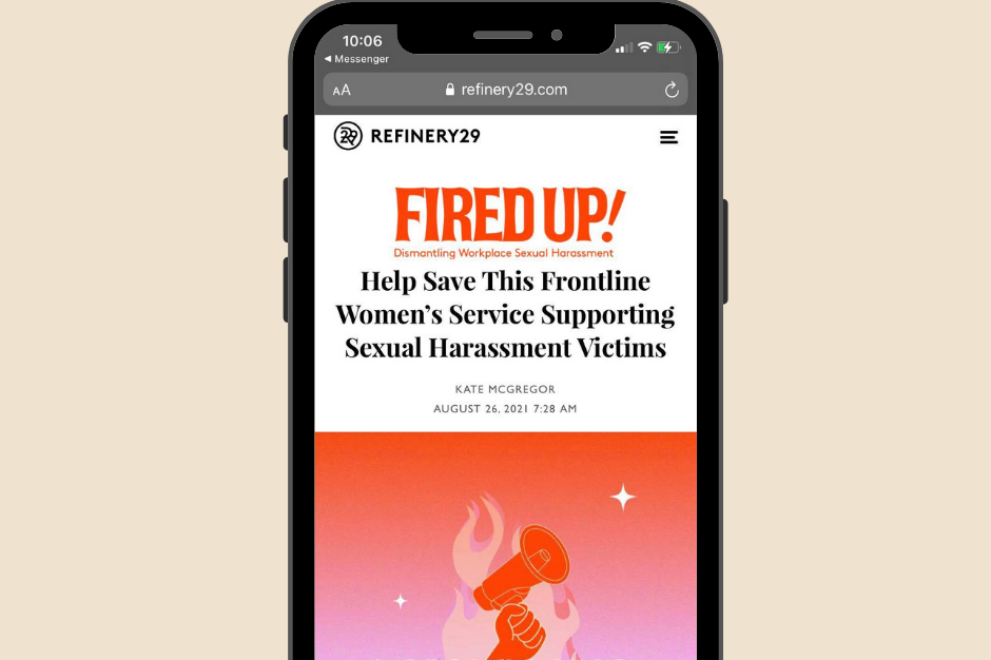
Registrations are open! Join our team & start fundraising for the Working Women’s Centre here:
https://citybay21.grassrootz.com/working-women-s-centre-sa
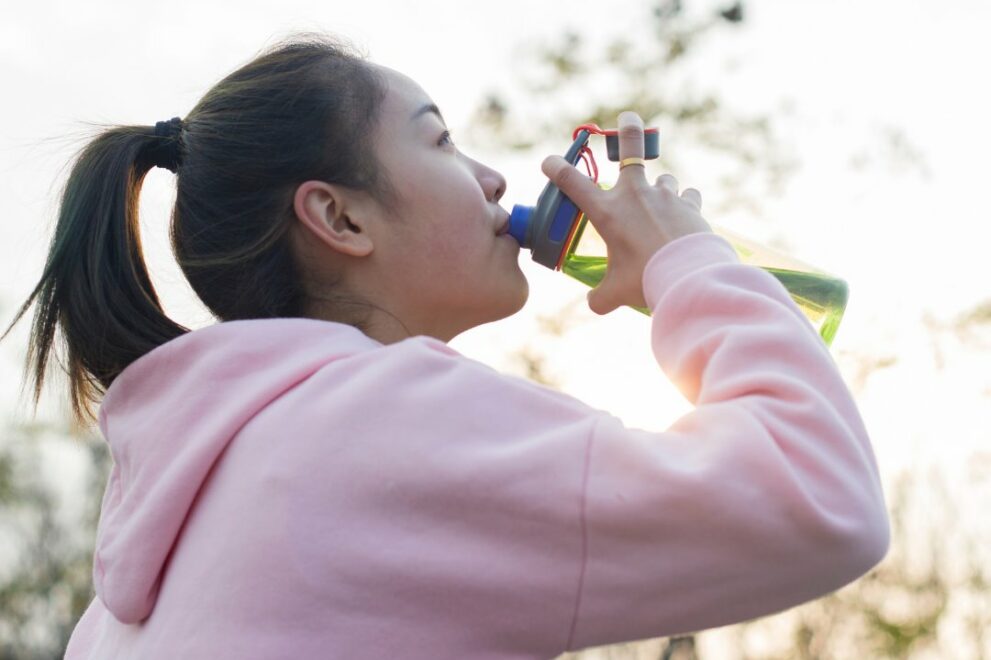
Working Women’s Centres – the first point of contact for women experiencing sexual harassment in the workplace – received just $200,000 in the Federal Budget.
“We are experts in preventing and addressing workplace sexual harassment and violence through one-on-one support, training and advocacy. The NT and QLD Working Women’s Centres are experiencing a funding crisis, yet only $200,000 was delivered in the Federal Budget. This represents only interim funding. How long can we wait for funding certainty?” said Nicki Petrou, Director of the Working Women’s Centre NT.
“Despite our long and proud history of supporting women workers and advocating for fairer and safer workplaces, we continue to battle for funding to keep our doors open.
“This is a huge missed opportunity for the Prime Minister to show a commitment to tackling workplace sexual violence. There is a massive unmet need for our services. Funding Working Women’s Centres is an easy, immediate and tangible solution for the prevention of sexual violence and provision of direct specialist support to women across Australia.
“In 2016, the Queensland Working Women’s Centre was defunded by the federal government and in 2020 we lost funding for the NT Working Women’s Centre. This Government has not provided any funding certainty in the Budget. This is disappointing to working women across Australia who are in desperate need of support.
“The Working Women’s Centre model is world-leading. We are the backbone of the struggle against workplace sexual harassment and violence. The voices of working women have not been heard. Survivors all over the country are speaking out, yet the “women’s budget” doesn’t adequately support survivors of sexual violence in the workplace. Scott Morrison has failed working women.”
“A key recommendation of the Respect@Work report – Recommendation 49 – was to fund Working Women’s Centres in every Australian state and territory. This is because our world-leading model is proven. Working Women’s Centres allow women to access free information and advice from specialist services when they experience sexual harassment at work,” said Nikky Candy, Director of the Working Women’s Centre SA.
“When a woman experiences sexual harassment at work they face very complex, personal choices. Being armed with the facts about their options empowers them at a time when they are incredibly vulnerable. Women should not have to make a decision between their safety and economic livelihood. This funding decision will leave vulnerable women even more vulnerable.”
“The Prime Minister has failed the test when it comes to tackling sexual violence in the workplace, especially for women in the NT who face the prospect of being left without specialised support in a matter of months. Funding the NT and QLD centres would have cost approximately $1.4 million per year, but instead, the government has only provided $200,000 in the budget to be split across both Centres.
“This $200,000 is not enough to save the NT Working Women’s Centre, which faces the prospect of closure after 1 July 2021. Both the NT and QLD Working Women’s Centres will have to turn away women in need of support and representation.”
“We are a much needed safety net for all Australian women to be supported at work. The government agreed with Recommendation 49 in their Roadmap to Respect, but has not yet done what is required to save the Working Women’s Centres,” said Fiona Hunt, Director of the QLD Working Women’s Centre.
MEDIA CONTACTS:
WWC QLD Director – Fiona Hunt
WWC NT Director – Nicki Petrou
WWC SA Director – Nikki Candy
Notice of press conference
WEDNESDAY 12 MAY, 11:15AM
Senate Courtyard, Australian
Parliament House
| WHAT: | Lawyers and advocates respond to defunding of Working Women’s Centres |
| WHEN: | 11:15AM
Wednesday, 12 May 2021 |
| WHO: | Nicki Petrou, Working Women’s Centre NT Director
Fiona Hunt, Working Women’s Centre QLD Director |
| WHERE: | Senate Courtyard
Australian Parliament House, Canberra |
| MEDIA
CONTACT: |
Nicki Petrou, WWC QLD Director
Fiona Hunt,WWC NT Director Nikki Candy, WWC SA Director |
We are partnering with Democracy in Colour to offer an opportunity for a person of colour to join the Working Women’s Centre team in this Junior Advocacy Officer position and develop their advocacy skills. This is a participant role in Democracy in Colour’s POC Placement Program – an on-the-job training program for campaigners of colour.
This program is about finding emerging campaigners of colour, supporting their talent, and pushing organisations to centre their voices for real, lasting change. It places emerging leaders in paid campaigning roles in advocacy NGOs alongside a training and mentoring program run by Democracy in Colour. As part of the program, the successful applicant will work within WWCSA, and spend on average a half day per week participating in training and professional development as part of the placement program.
The Working Women’s Centre SA Inc is a not-for-profit organisation that provides an industrial service to vulnerable working women and others. The Centre was established in 1979 and has been advising, supporting and advocating for vulnerable women and migrant workers for 40 years. The Centre provides support, advice, information and representation to women who face issues in their employment in both federal and state jurisdictions.
The Centre is also concerned with the structural inequalities for women in the workplace, and conducts outreach, community education and advocacy for the equal participation of women in the workforce and community. Current key focuses of the Working Women’s Centre include precarious work, sexual harassment, wage theft, women in male-dominated industries and the impact of COVID-19 on young women.
Young people, especially young women, have been disproportionately impacted by the enduring effects of the COVID-19 pandemic. The South Australian Government has provided a one-off grant allocation to the Working Women’s Centre SA Inc to inform the development of effective policy and practice responses to the unique employment-related needs of young women (12 – 30 years old) in the wake of COVID-19. We have already begun working on a project enhancing and creating secure employment opportunities for young women (12 – 30 years old) in response to COVID-19. The successful applicant for this role will take responsibility for rolling out the rest of the project.
The Junior Advocacy Officer will work primarily on issues facing women under 30, with a focus on temporary visa holders, First Nations women and women from low socioeconomic groups.
This is a full-time (35 hours per week) 12-month term contract position.
Employment conditions are specified in the Working Women’s Centre Inc Enterprise Agreement 2018. Presently, the Junior Advocacy Officer role is not set out in the Enterprise Agreement. The Enterprise Agreement is due for renewal and the classification will be added.
The position is based at the Working Women’s Centre in Adelaide SA but requires the capacity to undertake regional and remote travel occasionally. Some out of hours work is required.
Benefits include the following:
We encourage applications from all cis and trans women, as well as non-binary people who are comfortable working on advocacy that focuses on the experiences of young women.
The successful applicant will be required to get a working with vulnerable people check if successful.
If you require any further information, please do not hesitate to get in contact with the Director Abbey Kendall at abbey@wwc.org.au.
To apply, please fill out this application form, attaching a cover letter and CV.
Applications close at 5pm on Thursday 18th of March, 2021.
Work type: Permanent Full time (35 hours)
Sector – Not for Profit
Location – Adelaide
The Working Women’s Centre SA Inc is a not-for-profit organisation that provides an industrial service to vulnerable working women and people. The Centre was established in 1979 and has been advising, supporting and advocating for vulnerable women for 40 years. The Centre provides support, advice, information and representation to women who face issues in their employment in both federal and state jurisdictions. The Centre is also concerned with the structural inequalities for women in the workplace, and conducts outreach, community education, and campaigning for the equal participation of women in the workforce and community.
The position is subject to ongoing funding.
Employment conditions are specified in the Working Women’s Centre SA Inc Enterprise Agreement 2018. Presently, the Senior Advocacy Officer role is not set out in the Enterprise Agreement. The Enterprise Agreement is due for renewal and the classification will be added. Some out of hours work is required.
CONDITIONS:
Competitive salary $86,963.00
Salary Sacrifice available
12.0% superannuation
Flexible workplace
35-hour week (plus reasonable overtime stipulated in the EBA)
TOIL entitlements
WORKING WOMEN’S CENTRE OBJECTIVES
Enhance women and vulnerable people’s participation in and contribution to workplace arrangements that improve their economic prosperity and welfare.
Increase women and vulnerable people’s knowledge of the legal, policy, and institutional frameworks that promote workplace reform, including employment conditions, and fair and efficient arrangements for remuneration and safe work.
Provide a safety net of industrial relations related services to women and vulnerable people who are otherwise unable to access them to enable them to participate effectively in the labour force.
Enhance work-related services provided by other organisations to women and vulnerable people.
The Senior Advocacy Officer is responsible to the Director. The role will require supervision of junior advocacy officers and volunteers to the Centre. The role will require the Senior Advocacy Officer to lead, in conjunction with the Director, campaigns and advocacy projects that relate to the Centre’s objectives. Presently the Centre is engaged in advocacy and campaigning projects on the following issues:
The impact of COVID-19 on young women in South Australia;
Wage Theft;
Sexual Harassment in the Workplace;
The intersection of women’s economic security, precarious work, and family violence;
Increasing the participation of women in male-dominated and non-traditional roles including science, technology, engineering and mathematics (STEM).

Competitive salary $60,000.00
12% superannuation
Flexible workplace
35-hour week (plus reasonable overtime stipulated in the EBA)
TOIL entitlements
A Junior Industrial Officer’s duties are as follows:
Support Senior Industrial Officers to provide information and industrial advice to vulnerable people who are primarily not members of unions and who do not have their own lawyer.
Provide industrial and legal advice across a wide range of federal and state legislation concerning industrial and employment matters.
Support Senior Industrial Officers to represent clients in conciliation, arbitration, and court hearings with respect to industrial claims and disputes.
Work closely with the Director and Senior Industrial Officers on other tasks as required.
The successful candidate will have:
A legal qualification and eligibility to be admitted to practise in South Australia.
An introductory understanding of the Australian Industrial Relations system and workplace law.
An understanding of the role of the Fair Work Act2009 and Fair Work Regulations 2009.
A commitment to principles of unionism
A commitment to gender equity and feminist politics.
Demonstrated abilities in negotiation and conflict resolution.
Demonstrated high level written and oral communication skills.
Exceptional time management skills and demonstrated ability to prioritise tasks.
A demonstrated commitment to the principles of justice and worker’s rights.
Understanding of gender politics and the intersection with labour/employment policy

The 2020-21 state budget includes significant funding for infrastructure, including social infrastructure for hospitals and schools. Investing in our infrastructure in health and education sectors is beneficial for women, who make up the majority of workers in these sectors.
Increased funding towards traineeships and apprenticeships is another positive. The budget includes funding for 750 new traineeships and apprenticeships in government agencies and funded projects.
Young women are experiencing high levels of unemployment and underemployment. Women are more likely to be precariously employed, and direct funding towards traineeships and apprenticeships will help young people and women to gain secure work.
It is essential that the new infrastructure jobs and apprenticeships are equally distributed. The infrastructure push will lead to more jobs in construction and other traditionally male-dominated sectors. The government must develop a strategy to ensure that a greater proportion of those jobs go to women.
Working Women’s Centre Director Abbey Kendall said:
‘Let’s make sure that women as well as men are wearing hi-vis on these new big construction sites. Let’s make sure that women have an equal chance at a cyber-security traineeship as they do in the disability and aged care sector. It will require a targeted government strategy to avoid women being left behind in what could be a bloke-heavy infrastructure push.’
‘Likewise, the government needs a strategy for ensuring that an equal share of these new apprenticeships are going to young women. Jobs created through the funding boost for our national parks and reserves should go to First Nations people, young people and women in regional areas who are experiencing particularly high rates of unemployment. This is the time to reimagine the way we work.’
Working Women’s Centre Youth Project Officer Maddie Sarre said:
‘We’re hearing from so many young women that they are struggling to find secure work at the moment. The majority of them are open to starting a new career. This infrastructure and training push is the perfect opportunity to make sure young women have better access to tradie jobs.’
Media contacts:
Abbey Kendall, Director & Maddie Sarre, Youth Project Officer
reception@wwc.org.au
MEDIA RELEASE
3 September 2020
The Working Women’s Centre SA said today that COVID recovery stimulus measures need to go to feminised sectors if we are serious about economic recovery. Young women have been hit hard by COVID-related unemployment and underemployment, and investment in sectors which employ more women is the best thing we can do to address the economic crisis in the wake of COVID.
SA Premier Steven Marshall said this week that there will be new economic stimulus measures over the coming months, but has not yet specified which sectors the measures will be targeted at. Traditional economic stimulus measures focus on job-creation in male-dominated sectors through infrastructure and construction projects. But in this recession, young women are the ones who have been hit hardest by loss of work. Investment in sectors like social care and education would create at least twice as many jobs as the same investment in construction, and a far higher percentage of those jobs would go to women.
Abbey Kendall, Director of the Working Women’s Centre SA, said “We have had countless women come to our Centre seeking assistance after losing work due to COVID, often in unfair and discriminatory circumstances. When you look at the percentage of young women who are unemployed or underemployed currently, it’s far higher than that of any other age or gender demographic. This is because many of the sectors that have suffered, like tourism, hospitality and retail, are sectors with a majority-female workforce. Young women are also likely to work in casual jobs, and many have lost their job and been unable to access JobKeeper.”
“Many of the women that have continued working throughout the crisis have been workers on the frontlines: our health workers, our aged care workers, our teachers. Working women have been put under considerable strain during COVID. We need to show that we value the work that women do by investing in feminised sectors.”
“Economic stimulus that would create jobs for women could look like investment in mental health, in the arts, education, in environmental projects or programs to support international students. Stimulus measures that employ women are good for the community, and good for economy. We need to ensure that we are thinking about social infrastructure. All the research is telling us that government spending in health, education and care will create many more jobs than construction. Social infrastructure has to be a priority.”
“Where we invest in infrastructure, when we build social housing, roads, bridges, community centres, we have to make sure women are getting jobs on these construction sites. We need targets around female apprenticeships, so that we move all of these young women who have lost their jobs in hospitality, retail, tourism and accommodation into secure and valuable work. ”
Media contact: Maddie Sarre, maddie@wwc.org.au